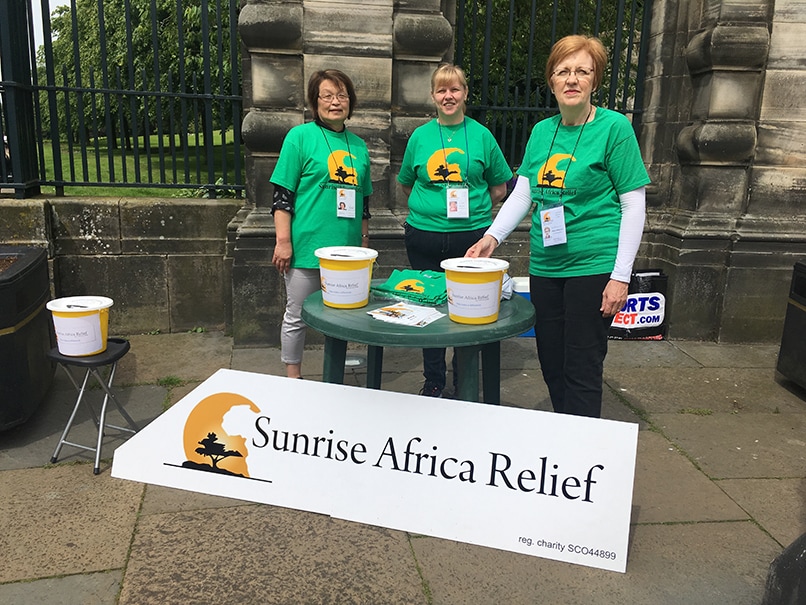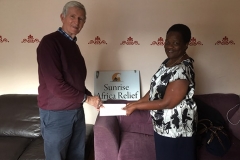In July 2019 charity trustee Robert Williamson visited Zambia and took some knitting donated by a lady who knits for the charity in Dunfermline. These knittings are for babies born prematurely and because they are made from pure wool provide wonderful warmth in the winter season. Many of the young mothers come from desperately poor backgrounds and cannot afford quality clothing for their children.
Rev. David Phiri of the FFWPU movement who lives on the outskirts of Lusaka and his wife reported that their youngest boy had fallen and knocked over a container of scalding water, was badly burnt and rushed to Matero hospital in Lusaka, the capital city of Zambia. He was admitted for seven days, but has since made a full recovery. His parents told me that they were really grateful for the nursing staff at the hospital and I suggested that our charity could help them to make a small appreciation by donating these baby woollen items.
We visited the hospital and met the staff and nurses with a presentation of the baby knitting’s. The nurses were so grateful as they had just had some recent births from a number of very poor mothers and that the donations would be a great help indeed!
I felt that even a small donation can go along way in relieving hardship and I hope that here at Sunrise Africa Relief we can continue to do small things which can grow into big things!
On behalf of the charity we wish all the staff well at Matero hospital and the young mothers and babies as well.
Dear Visitor
We rely on donations to continue funding projects in Africa and the UK. Sunrise Africa Relief chooses carefully areas where your donations can make a real impact whilst providing strict oversight to ensure those needing our help receive it. So, you can be assured your donation will be used towards a good cause. We would greatly appreciate any donations you can make. Thank you.






